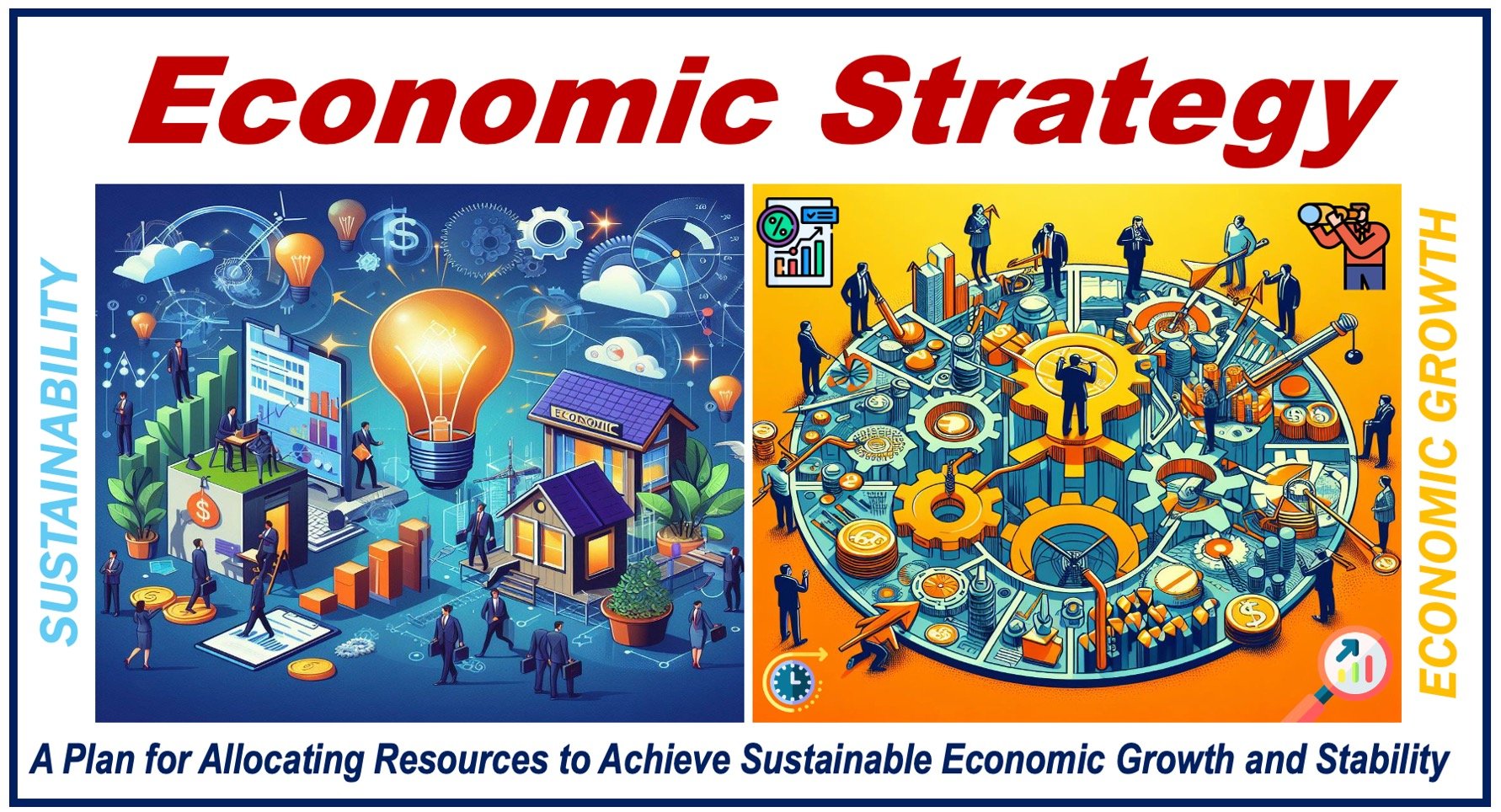The term “Economic Strategy” refers to a comprehensive plan that the government creates to achieve sustainable growth and stability. The strategy encompasses a range of actions and policies designed to manage a country’s resources effectively.
Economic strategies can be applied to various scales, from single businesses and local communities to entire countries or economic regions.
Fiveable has the following definition of the term “economic strategy”:
“An economic strategy refers to a plan or approach that is implemented to achieve specific economic goals. It involves making decisions on how resources should be allocated and utilized within an economy.”
Creating an economic strategy
Before you begin to create a strategy, you need to identify the strengths and weaknesses of the economy in question.
To do this, you must assess the following factors:
- Availability of Natural Resources – important for self-sufficiency and export potential.
- Level of Technological Advancement – determines productivity and global competitiveness.
- Skills/Education of the Workforce – influences innovation and operational efficiency.
- Efficiency of Infrastructure – crucial for trade efficiency and economic connectivity.
- Economic Diversification – reduces dependence on a single sector, promoting stability.
- Business Climate – affects investment attraction and entrepreneurial activity.
- Demographic Trends – impacts labor market dynamics and economic demand.
Once you have assessed these factors, you must aim to leverage strengths and address weaknesses to stimulate economic growth.

Common goals
Most economic strategies have the following goals:
This means getting each worker to produce more goods and services within the same amount of time. In other words, increasing output per worker per hour, day, week, or month.
Employers must be encouraged and incentivized to invest in technology and training
-
Enhance competitiveness
If international trade is important, this means improving competitiveness on a global scale. Your strategy should aim to improve access to international markets, reduce regulatory burdens, and support innovation.
Your economic strategy should focus on creating a stable environment that helps businesses thrive and encourages investment.
Avoiding large deficits is crucial. The government should not spend significantly more than what it collects in tax revenue.
-
Legal and regulatory stability
Businesses are more likely to make long-term investments if there is a stable legal and regulatory framework.
-
Sustainability
The aim is not to just grow the economy but to do so in a way that does not deplete natural resources or harm the environment.
Your strategies may include promoting renewable energy, the efficient use of resources, and practices that minimize pollution and waste.
Economic strategy about making choices
As resources are limited, the government, businesses, and other entities must decide where to focus their efforts for maximum impact. This requires a clear understanding of the current state of the economy, and a strategic plan to actualize that vision.
A good economic strategy balances short-term needs with long-term goals. It aims for a future where the economy is not only bigger but also stronger and more inclusive.
